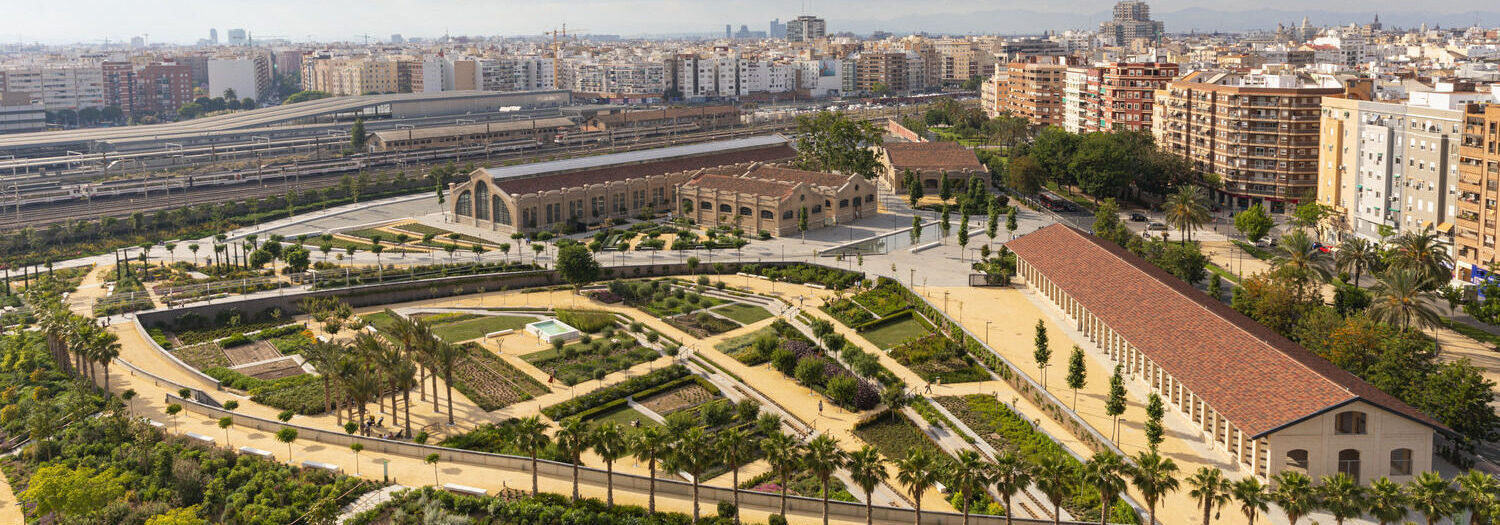Uncertainty is a big issue for any PhD student: uncertainty about the topic of research, the methods or even the goals, uncertainty about the ability to finish in time and increasingly about what it means to finish a PhD (is it when the papers are published, when they are submitted, accepted, etc?) and of course, uncertainty about the post-PhD life. We have tried to address some of these issues by having a dialogue between two PhD students and one researcher with 10 years of postdoc experience. We did this by asking ourselves three questions and answering in an alternate sequence.
Dima Yankova and Ghinwa Moujaes are two Research Fellows at INGENIO, Valencia and Pedro Marques is the scientist in charge at INGENIO and one of the PHD advisors.

Will I finish my PhD in time?
The first time this question seriously dawned on me was around Christmas when I was already three months into my PhD and still barely scratching the surface of what was meant to be my topic. The more I read, the more there was to read. I don’t know if time constraints are such a major factor in a “standard” doctoral program, but within POLISS – where everything seems to be following a rigorously defined schedule – pursuing a PhD sure feels like a race against the clock sometimes. It is stressful to dwell on the deadlines and the milestones ahead of us, but I do believe silver linings are everywhere. For one thing, I am becoming much better at managing my own time. I am learning how to filter out some of the noise – like webinars with catchy titles and little substance, free online courses that seem promising but end up teaching you 5% of what you truly need… Perhaps mastering the art of strategic choice making is the single most underrated skill that we’ll take away from the POLISS experience.
Dima and I talk about this concern a lot. Sometimes she is the positive one and other times I am. The point is, these doubts keep coming back. A PHD is not an easy process. There is a lot to do, a time limit and basically the student has sole responsibility to make sure everything is done on time. I guess the best solution is to just take it one step at a time and not let the overwhelming thought of what is due in 2.5 years to continuously scare me. Sometimes I am capable of tuning out the fears and enjoying the day to day. This indeed makes the daily work more enjoyable and less stressful. Other times, the measurement of how far I still have to go scares me again. In these times, I am grateful for the support system I have been able to build around this PHD to get me back on track again.
Pedro:
Even within the relatively short time span of my academic career (I started my PhD in 2006), this issue has become far more important than it used to be; and as far as I can see, the main change is the pressure to publish papers, of high quality, even before the PhD is completed. Unfortunately, as with many other issues, there is no magic bullet to deal with the pressure to finish in time, apart from what Ghinwa and Dima already mentioned in their answers: if you focus on doing one thing every day, at the end of the year you will have done 262 different things (please try to rest on weekends!). You should also hopefully have a professional support network, including supervisors, PhD students, or the ITN network in the case of the POLISS students, with whom you can exchange ideas, ask for support, and talk about the difficult times when they arrive. Apart from that, I think that accepting that the time limit is beyond your control can help you to focus on the things that you can indeed control, and that ultimately are the ones that will allow you to arrive at the finish line.
“If you focus on doing one thing every day, at the end of the year you will have done 262 different things.”
Is my project worthwhile?
Ghinwa:
As I spend a lot of my time reading the policy and academic literature of Economic Geography, innovation policies and Smart Specialization, it is easy for me to get lost in wondering whether my work will ever be as interesting or as good. On the one hand, I need to accept that interesting research comes after a lot of experience with “failure”. My advisors remind me of this often, to make sure I am less scared of failure. On the other hand, having my PHD research within the POLISS network is an advantage. The topic is already focused on a real-life issue and a policy with a lot of popularity across the EU. I already know how interested policy makers are in the world of Smart Specialization. As a researcher (or at least for me), contributing to growing policy domains is a top priority.
Pedro:
I often like to say that the only constant of academic life is “failure”: papers that get rejected, research proposals that do not get funded, job applications that go nowhere, great academic collaborations discussed over a beer (or two) after a conference day that never materialise… Though this might sound pessimistic, it is not intended to be so, because one could probably say the same about any demanding and competitive industry. On the contrary, the lesson to extract from it is that the most important thing you will get out of your PhD is not the project itself, but the learning process about how to design, implement, and bring to fruition a research project. This includes dealing with the missteps, roadblocks and or any other problems that you will inevitably encounter. And as Ghinwa said, the POLISS network can be an advantage, as a source of support and encouragement.
Dima:
I find Ghinwa’s reflections utterly relatable. It seems fitting to share an anecdote from some weeks ago when during an online class at Bocconi University, the professor engaged in a discussion about the strengths of a particular research paper. The authors had developed a novel methodology to address an age-old problem and we were asked to reflect on its pros and cons. As the discussion unfolded, the professor mentioned briefly – almost as a side note – that this paper was in fact someone’s thesis work. When the class was over, some of us in the POLISS network shared our impressions over WhatsApp. Funnily enough, everyone I talked to seemed to have picked up on that one fleeting comment from a 3.5-hour-lecture (myself included), and we were all wondering whether we are ever going to develop a revolutionary methodology for our thesis work. I only mention this because I think it’s very telling of how subconsciously worried we are about failure and meeting some arbitrarily defined standards of success. I think that there is nothing wrong with setting the bar high, but as Pedro said, accepting that you will fail multiple times along the way is a healthy way to go about your PhD.

What will my future look like?
Pedro:
I know that this is not very helpful, but you will only know what the future looks like when you get there. I wish I could convince PhD students not to worry about it, and to focus instead on making the most out of this stage in their life, but as someone who used to worry (a lot) about what my future would look like, I know that this is unrealistic. What I can offer as advice is the following: throughout my PhD there were moments when I thought I didn’t want to stay in academia. The isolation, the pressure, the competitiveness, combined with the fact that we mostly focus on hyper-specialised areas of research, often to make very incremental contributions to the literature, made it all seem a bit… well, pointless to be honest. But since I finished my PhD I rediscovered why I wanted to be a part of this world all along. A few years ago I read an interview with Umberto Eco, the late Italian professor and novelist, where he said that for all its faults, academia is still the only place left where you can have an idea and work on it for a year. Having had some personal experience with journalism and consultancy, I am convinced that Umberto Eco was right. At the same time, I know people who left academia and haven’t looked back once, having gone on to do very interesting things. So, to go back to the beginning, the key is to remain curious and open to opportunities, and trust that when the time comes, you will make the best decision for yourself, based on what you know at the time.
Dima:
I’ve come to acknowledge that worrying about your future is a somewhat futile exercise. That does not mean I don’t do it all the time. I just think that the world is shifting faster than we even realise and guessing what jobs or skills will be in demand 3 years from now is an equation with too many unknowns for me to solve. To Pedro’s point, though, staying open to opportunities does seem like our best bet. And being part of the POLISS network gives me a sense of reassurance that from all the summer and winter schools, academic and non-academic secondments, meetings, conferences and what have you, we will all get our shot at figuring out what the next step should look like.
Ghinwa:
I couldn’t agree more with Dima’s thoughts. I think that COVID is changing the world of work as we know it. It is a huge disruption, keeping us quite uncertain on which “skillset” will be resilient in the future. On its own, this is already quite daunting, even before adding to it the PHD uncertainty. A part of me knows that being worried about the future is futile and counterproductive. Although both Dima and Pedro remind me of the futility of worrying all the time, it’s tough to stop the anxious thoughts! Mostly, I try to focus on how being part of this experience provides access to a huge set of opportunities. The versatile way the POLISS program is organized gives me good training to not only become a better researcher, but also a better data analyst, policy maker, critical thinker, and eventually whatever I decide to be! To combat the negative thoughts, I try to focus on the world of opportunities this whole process can provide for me. It keeps me motivated and looking forward to this process.
“The versatile way the POLISS program is organized gives me good training to not only become a better researcher, but also a better data analyst, policy maker, critical thinker, and eventually whatever I decide to be!”


